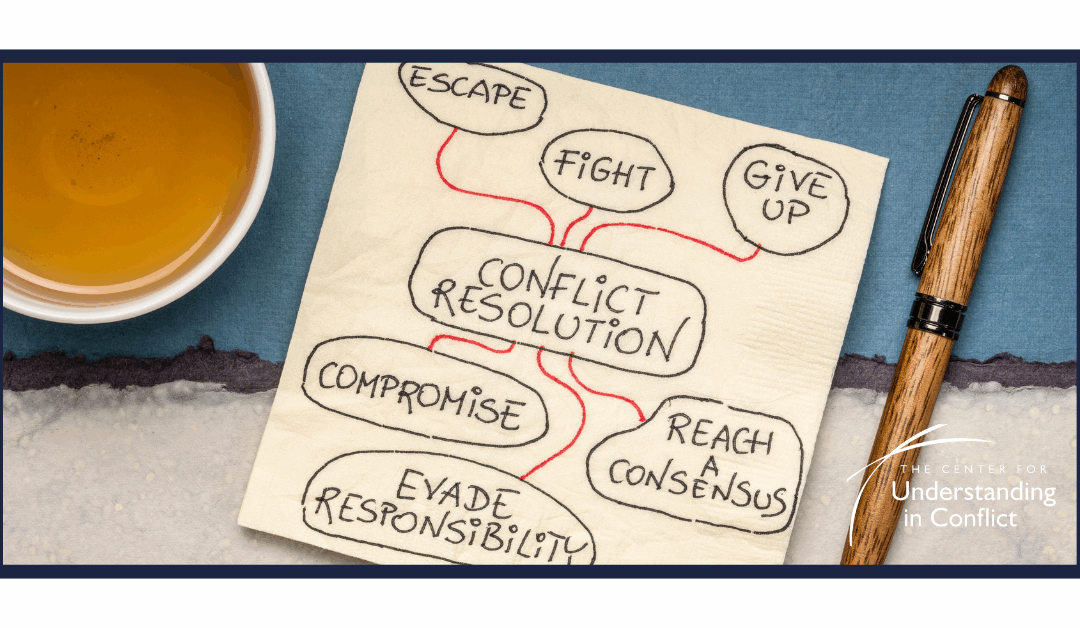There’s a moment in many work relationships when tension begins to surface. A project slows down because team members are no longer aligned. A conversation lingers long after it ends, filled with the weight of something unsaid. A once-strong collaboration begins to strain under the pressure of misunderstanding, mistrust, or unspoken disagreement.
We’ve all been there – whether leading teams, supporting others through our roles in HR or coaching, or simply trying to navigate shared work with integrity. Conflict at work is not unusual. What’s harder is knowing how to meet it in ways that truly help.
Often, people respond to workplace conflict with silence or avoidance. Others try to fix it quickly or step in to mediate without much clarity. Sometimes the issue is brushed aside until it grows, leading to frustration, missed opportunities, or lasting damage to morale. Too often, the tools we reach for don’t match the complexity of what we’re facing.
This is where the Understanding-based approach offers something different. It starts from a simple idea: when we slow down and seek to understand – ourselves, each other, and the conflict itself – we create space for something new to emerge. It is not about smoothing things over or rushing to agreement. It is about creating the conditions where people feel safe enough to speak honestly, listen fully, and move forward with more clarity.
This September, the Center for Understanding in Conflict is offering a half-day training specifically designed for people working in and around organizations who want to bring more skill and confidence to difficult conversations.
Whether you are an HR professional, a team leader, a coach, a consultant, or someone working on a cross-functional team, this program is built for you. It is not about theory, but practice – the kind that strengthens your ability to meet conflict early, before it hardens into patterns that are harder to shift.
You’ll learn how to build trust in the midst of disagreement. You’ll explore how to recognize and de-escalate tension. And most of all, you’ll leave with a more grounded sense of how to show up when things are tough – not by having all the answers, but by being more present, more aware, and more able to support honest dialogue.
Participants often say this work changes how they think about conflict – not just professionally, but personally. It helps them stay connected when conversations feel charged. It gives them a structure to rely on when emotions run high. And it reminds them that conflict, while uncomfortable, is also an invitation – a chance to uncover what matters, repair what’s strained, and strengthen the relationships that make work meaningful.
This approach is especially useful for those who feel caught between roles – those who are asked to support others, but who also hold responsibility themselves. It’s for people who are called on to “manage” conflict, but who know deep down that what’s really needed is something more human.
In the training, you’ll have the chance to reflect on your own experiences with conflict. You’ll engage in small group exercises, role plays, and guided conversations. And you’ll begin to build the habits of listening, inquiry, and awareness that lie at the heart of the Understanding-based model.
The program is designed to be accessible, interactive, and immediately useful. It doesn’t require any prior experience with mediation or facilitation. It does ask for your willingness to be present, to explore your own patterns, and to consider the possibility that how we are in conflict matters as much as what we say or do.
We believe that workplaces can be more humane. That people can work through differences without losing connection. And that with the right support, conflict can be not just managed, but transformed.
If you’ve ever sat in a meeting and wondered why a conversation turned sour, if you’ve ever hesitated to address a tension with a colleague, or if you’ve wished for more skill in navigating the human side of work – this program is for you.
It’s not about fixing people or avoiding discomfort. It’s about showing up differently, together.
We hope you’ll join us.
